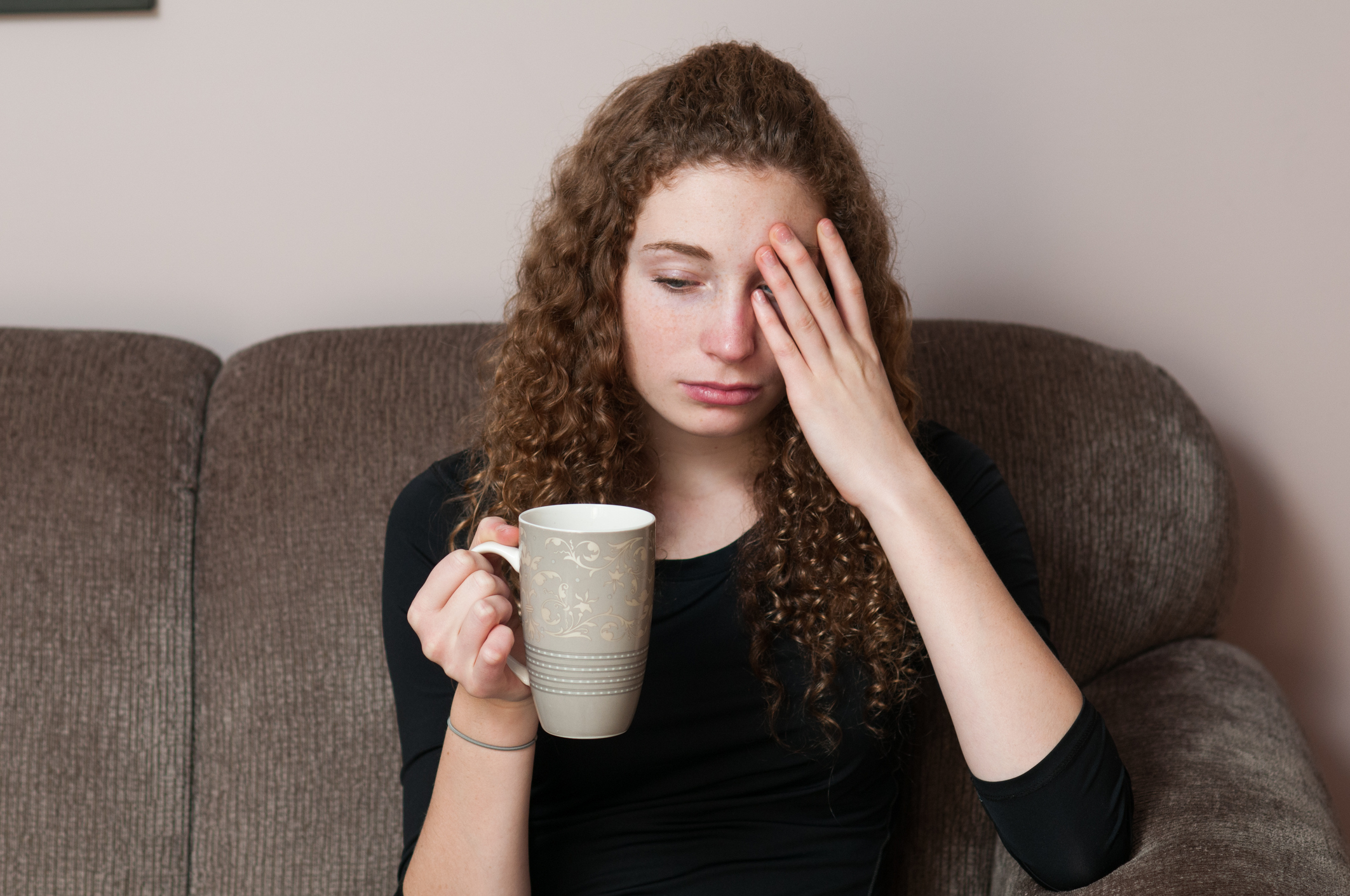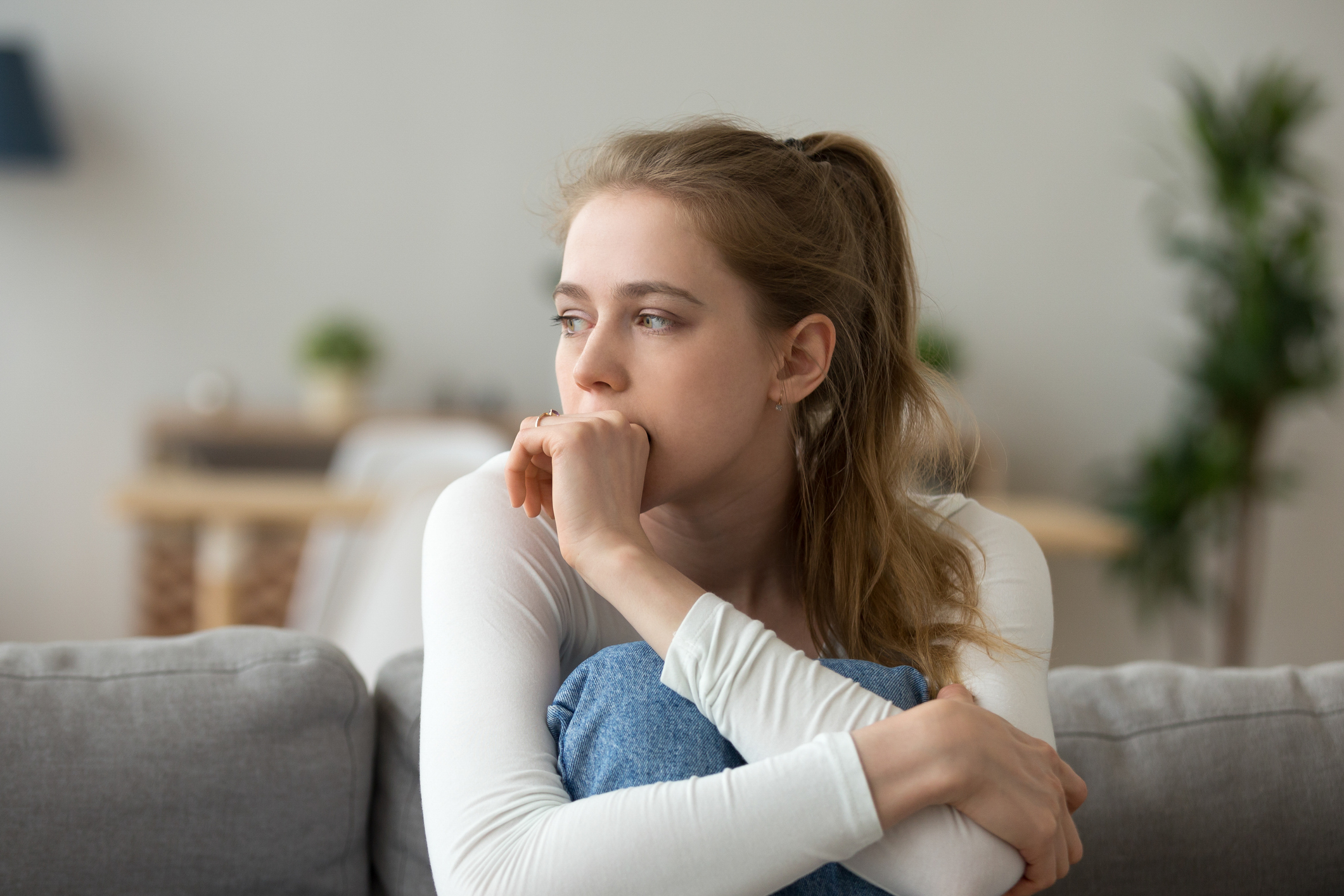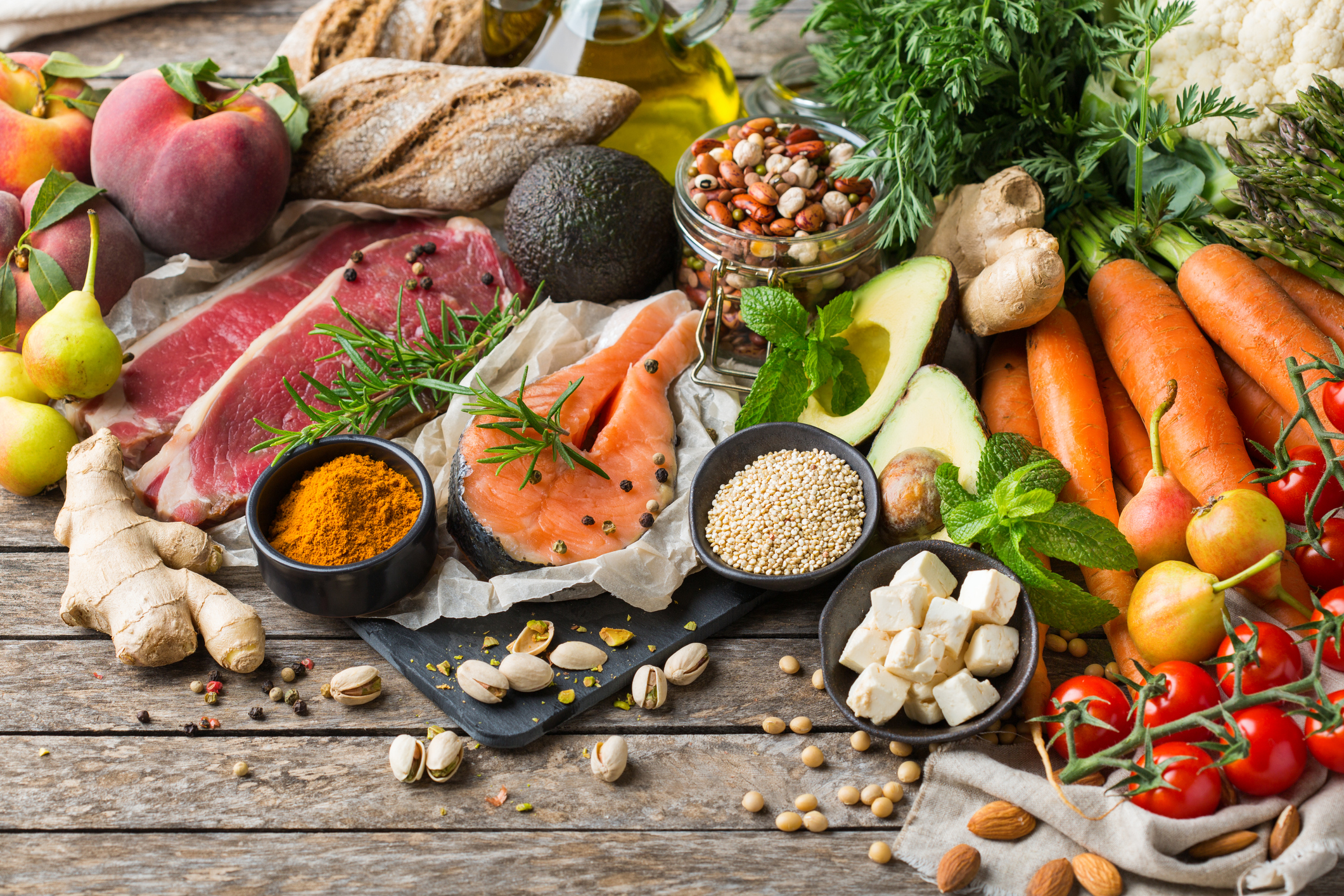This is a guest post that originally appeared on ChrisKresser.com.
“That the birds of worry and care fly over your head, this you cannot change, but that they build nests in your hair, this you can prevent.” – Chinese Proverb
Confession time: If I had to choose one personal health issue that I’d love to wipe out with a simple wave of my hand, I’d choose anxiety.
Everybody has some type of health concern that they deal with on a daily basis; it’s rare to find someone who feels completely, 100% healthy and free of any ailment.
While many healthcare practitioners (including nutritionists) may give off the impression that they have all the answers to perfect health, the truth is that many of us struggle with our own issues, and some of the best health experts in the world became that way because of their struggle with a serious illness. For me, I’ve been on a quest to figure out how to manage my anxiety without resorting to pharmaceutical treatment.
Anxiety disorders are one of the most common forms of mental illness in the United States, affecting approximately 18% of the adult population, costing us more than $42 billion a year in healthcare services. (1)
And that’s just the people who have actually been diagnosed – in our hectic, stressed-out, achievement-driven society, many people deal with stress on a regular basis, even if they’re not actively seeking treatment for their condition.
While I’ve been tempted in the past to run to a doctor for a quick-fix anxiolytic medication (especially when I was a graduate student), deep down I’ve always known that this could never be the answer I was searching for. I didn’t want to use a treatment that could be hard to stop, or that could even be dangerous to my health.
After searching for effective non-pharmaceutical treatments to help manage my anxiety, I’ve found a few specific methods that, for me, have made a big difference in my day-to-day experience of anxiety.
From my personal experience, here are the three best ways to manage your anxiety without resorting to drug treatment.
1. Un-Restrict Your Diet
This recommendation is for all of you 99% Paleo dieters out there who are worried that even the most minor of slip ups will completely derail any progress you’ve made in changing your diet for the better.
While certain people will benefit from a strict Paleo diet that completely eliminates foods like grains, legumes or dairy, from my experience, the majority of people out there do not need to be quite so restrictive in order to maintain overall good health.
First, think about the amount of carbohydrates you’re eating. While some people believe that a very low carb diet is healthy for everyone, my own personal experience (and the experience of others) has shown me that low carb is not always the best choice, especially for those of us who struggle with anxiety.
If you’re on a very low carbohydrate diet (<100 g per day) and feeling anxiety on a regular basis, you may benefit from an increase in carbohydrates. I recommend starting at 20-30% of calories, and seeing how you feel at that level. You may even feel better on a higher carbohydrate diet, perhaps around 40-50% of calories (or more!).
Don’t let the low-carb dogma dictate how you eat – if you feel like crap on a low carb diet, that’s a relevant feeling and you should be prepared to experiment with a higher carbohydrate diet. And while eating enough protein and fat can be helpful with anxiety, some evidence suggests that too much protein can induce anxiety, so try not to go above 1 gram of protein per pound of body weight if you’re prone to anxiety or panic attacks.
Finally, consider the overall restrictiveness of your diet. Are you on a self-imposed autoimmune protocol despite having no autoimmune diagnosis or symptoms? Do you completely avoid all dairy even though you’ve never had a problem with it in the past? Do you avoid generally benign foods like white rice, properly prepared legumes, or natural sweeteners like honey or maple syrup simply because they’re “not Paleo” or some armchair nutritionist on Paleohacks said that cavemen didn’t eat rice? In this case, consider the possibility that your overly restrictive diet may be doing more harm than good.
2. Try Quality Supplements
(Please check with your healthcare provider before taking any supplements. These recommendations are intended as general advice only and should not replace medical advice from your primary care physician or other provider.)
If you feel like you’ve already experimented with your diet to no avail, there are some excellent supplements that may be beneficial, including herbs and nutritive formulas. While there are hundreds of combinations that may be beneficial, there are a few more well-studied types that will give you the biggest bang for your buck.
Some of the herbs that are generally understood to help with anxiety are: California poppy, hops, verbena, chamomile, lemon balm, valerian, rhodiola, lavender, and passionflower. (2a, 2, 3, 4) These herbs are available as supplements, tinctures, and even tea blends for those looking to use evidence-based natural strategies for anxiety management.
Many supplements contain a mixture of these herbs, which can be helpful for those looking for a reduction in anxiety without the side effects that often come with pharmaceutical treatment.
Personally, I like to use Integrative Therapeutics’ Lavela during the day and the Revitalizing Sleep Formula before bed; I find they help take the edge off and allow for a more restful sleep on days where anxiety is starting to get the best of me.
Would you like to save this post?
Your email address is 100% safe and will never be sent spam.
There are some nutritional supplements that are helpful as well. L-Theanine, an amino acid largely found in tea, has been shown to be effective for its anxiolytic effects, including increased alpha brain wave activity and inhibiting cortical neuron excitation. (5)
While you can get L-theanine from drinking tea, it’s far more potent in supplemental form, and if you’re dealing with regular anxiety, you may find that it helps keep you calm and focused during the day without causing drowsiness.
Magnesium is also important to supplement with, as most of us are unable to get adequate amounts of it in our daily diets to replace the losses caused by modern day stressors. And research has shown that magnesium deficiency can lead to anxiety and HPA axis dysregulation. (6)
If you prefer not to take magnesium supplements orally, you can also increase your magnesium levels by taking epsom salt baths or using a topical magnesium oil. Whatever your method, I strongly recommend finding a way to boost your magnesium levels if you’re struggling with chronic anxiety.

3. Cut Down on Caffeine
I know, I know… cutting out caffeine sounds like a death sentence for many of us who either need the caffeine to get going in the morning or just love the taste of a nice hot coffee as part of our morning ritual. I’ve tried to quit caffeine before, but haven’t been too successful, as I’m back in the habit of drinking a few cups of coffee every day.
The good news is that cutting down on caffeine doesn’t require total elimination of all caffeinated beverages. In fact, going cold turkey on caffeine can actually lead to an increase in mental distress and symptomatic anxiety. (7)
Caffeine withdrawal is a legitimate condition and one that I’ve experienced in the past when I went from excessively drinking multiple espressos daily (I was working as a barista while traveling in Australia) to a complete cessation of caffeine consumption.
I felt awful, and it wasn’t just the emotional attachment to my coffee that was causing the problems; there are actual documented symptoms that come from a sudden removal of caffeine. (8)
So instead of going cold turkey on your morning cup of joe, try reducing the overall caffeine you consume on a regular basis by half. Maybe that means going from 6 cups of coffee per day to 3, or perhaps you switch out one or two cups of regular for decaf coffee or green tea instead.
Caffeine is a well-established anxiogenic (i.e. anxiety-producing) stimulant, and if you’re dealing with chronic anxiety, it’s worth at least moderating your caffeine intake and trying to reduce it over time. (9)
You may find that you need less caffeine than you think to get going on a daily basis, and you may end up with more energy and less anxiety or feelings of panic if you don’t overload your nervous system with this potent stimulant.
As an aside (and this relates to step 1 above), one common practice that many Paleo gurus promote is the use of “Bulletproof Coffee” as an effective weight loss and intermittent fasting protocol.
While there are many people who experience great benefits from this method, I would caution anyone who deals with significant anxiety to reconsider their use of Bulletproof Coffee as a daily practice. The combination of caffeine, daily fasting, and carbohydrate avoidance is liable to exacerbate feelings of anxiety for those who are susceptible, especially women. (10)
If you do choose to continue with Bulletproof Coffee, try eating a real breakfast at least a few days a week, and use L-theanine to combat the anxiety-provoking effects of caffeine. (11) Like a low-carb approach, if Bulletproof Coffee makes you feel terrible, stop drinking it! (Don’t be a lemming!)
Time to Take Action!
Now that you’ve read my top three tips for managing your anxiety, I’d like to hear from you. Have you implemented any of these recommendations? Do you have any other ideas that would be helpful to other readers?
I’ll be covering more natural ways to manage anxiety in part two of this article series, but for now, I’d like you all to focus on these three and report back to me once you’ve given them a try!
Share your experience in the comments below!
Note: By purchasing the products I’ve recommended through any Amazon affiliate links, I do earn a small commission, which helps support my ability to continue sharing my nutrition and health knowledge through writing. Thank you for your support!
This post may contain affiliate links. If you click on a link and make a purchase, I may receive a small commission.



+ show Comments
- Hide Comments
add a comment